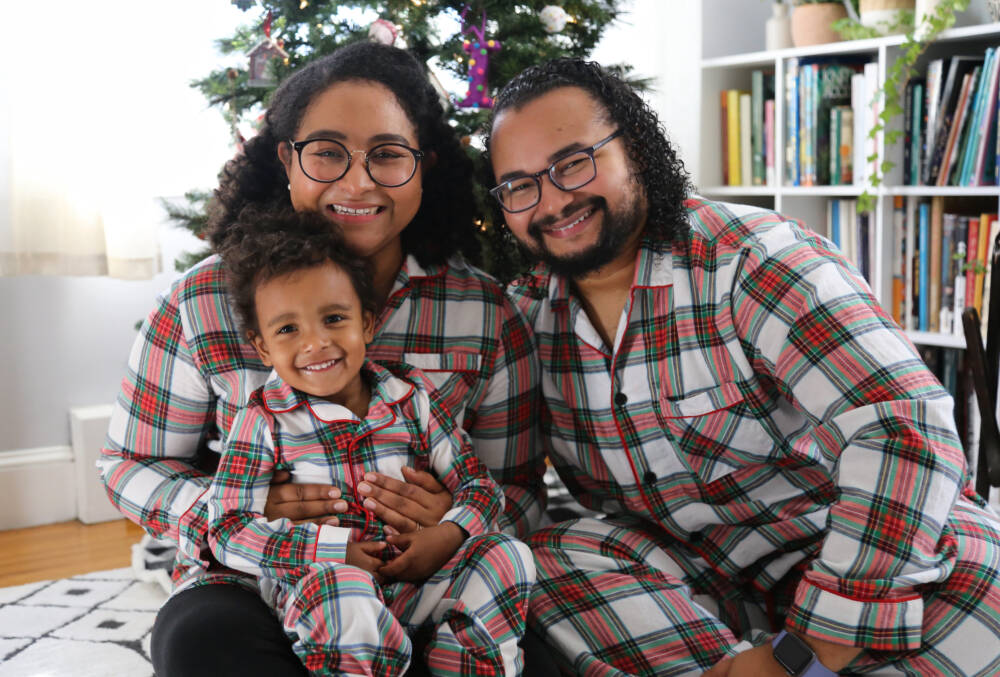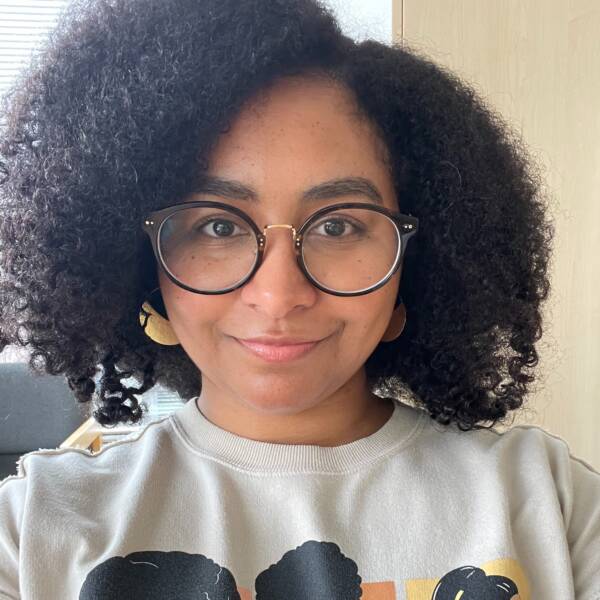Advertisement
Commentary
I see you, Black mothers. Mother's Day is complicated for me, too

As a mother, I think about death all the time. I worry about the hidden threats of daily life, the uncovered electrical outlets and slippery tiled floors. I cut my son's grapes into fourths, and I listen to his breathing at night. But as a Black mother, the specter of death is even more present.
Our baby was six months old when my husband and I looked out our window on New York City's Frederick Douglass Circle each day and saw the swarms of marchers and bikers, the protesters proclaiming the truth that our lives mattered.
I had googled local hospitals and their maternal mortality rates the moment I found out I was pregnant. The greater rates at which Black women died, and the horror stories about labor and delivery from Beyonce to Serena Williams, already told me that, institutionally, my life was not a priority.
But now, as a new Black mother, I considered the well-worn reality of police brutality and attacks like the Buffalo supermarket shooting. I understood that places of refuge, like grocery stores, or Target, or my own bedroom, are not safe. And I began to develop new fixations, like seeking out updates about rapidly forming hate groups from the Southern Poverty Law Center in those quiet morning moments when I used to read fashion blogs.
But as a Black mother, the specter of death is even more present.
Faced with the paralyzing reality of the world I had been so presumptuous to bring my son into, I considered what to do when safe places are no longer safe. How could I prepare?I prepared by thinking even more about death.
I couldn't stop thinking about how I might answer questions if called to a press conference about the death of my child or my husband. Because even when you are shot for no reason, you, your family, and your entire life is put on trial.
And so, as I pumped breastmilk and called daycares and read high-contrast books to my son, I began to create my own public relations guide in case my world ended. It would be my cheat sheet in case I was ever on the other end of a media frenzy. I had plenty of source material to work with, from the Scottsboro Boys to Emmett Till to Breonna Taylor — the list goes on.
First, the professional pictures you use for holiday cards must showcase a beaming, intact Black family, sympathetic enough for the press, and for the inevitable internet comments. Matching clothes are a bonus.
During that interview — you know, the one where the parents and family stand next to a religious leader, steeped in pain — it is important to cry, but not too hard, because you will need to speak coherently, and you will need to look aesthetically pleasing. America is not sympathetic to ugly Black women, and your mascara must remain intact. It goes without saying that a few well-placed sobs may not engender sympathy from everyone, but will show that yes, you were a real family, and that you are not, in fact, the "strong Black woman."
Make sure your husband is with you and that your marriage bands are visible. He, however, should not cry. He must present as a strong, solid, professional Black man. One tear a la Denzel Washington in "Glory" is, of course, acceptable. But nothing more.
I see mothers like me, and I wonder if, when they hear “Happy Mother’s Day,” they feel the same twist in their stomachs ...
To prepare your son, starting in preschool, you must make sure he is always dressed like a future investment banker — no hoodies, no excuses to pull a trigger. Remember that Black boys turn into Black men in the eyes of the law at around age 10. Bonus points if your child wears glasses and a private-school logo on his backpack — these markers will differentiate him from "the rest" in the eyes of the media.
And if the news can pull up pictures of you all at a party on the Vineyard it will play much better than the laughing candids from your monthly Popeyes indulgence.
We live outside of Boston now, in a diverse suburb. There is more air here, more green space. I find it easier to breathe. We all do. I see more faces and families like mine, believe it or not, than I did on West 110th. I see women who have the same laugh lines and freckles as my Grammie, and I hear my mother’s lilting Jamaican accent at the park. I see mothers like me, and I wonder if, when they hear “Happy Mother’s Day,” they feel the same twist in their stomachs knowing that the word ‘mother’ encompasses so much joy, yes, but also worry and pain. As their children squeal on swings, I wave at the women. I see you, Black mother. I am vulnerable, too. I, too, strive to be a worry-free, happy, Black mother.Yesterday, my son, now 3, proudly presented me with a speckled rock, retrieved from his pants’ pocket, lovingly held through a full day of school. His warm, sticky hand outstretched. “I find it for you.”My little rock, handing me a little rock.
“Thank you,” I said, slipping it into my pocket. “Mummy loves you. So much.”
He’s going to be a fantastic big brother someday. God willing.
